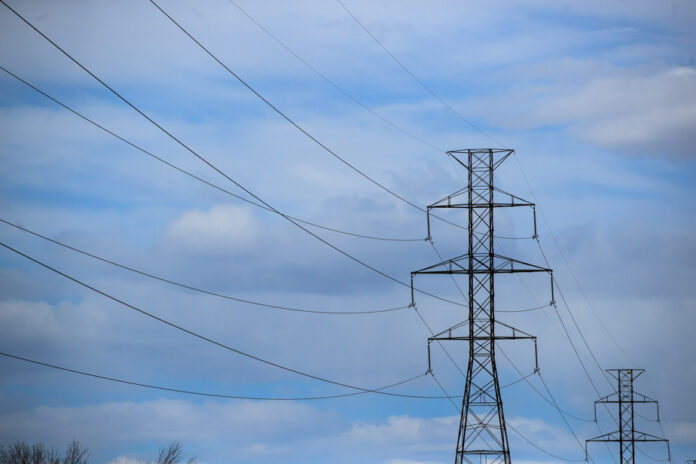Quebec and Ontario have signed a new memorandum of understanding on an exchange of electrical power to help each other during peak consumption.
The previous agreement covered the period 2017-2023, and included the purchase by Ontario from Hydro-Québec of the equivalent of 2 TWh per year. This electricity purchase portion is absent from the new memorandum of understanding.
In recent years, Premier Doug Ford has said several times that Ontario will not buy electricity from Quebec, saying it has an energy surplus.
Ontario Energy Minister Todd Smith said the new energy deal was a simple swap, with no payments on either side, and the transfer could begin as early as this winter.
Provincial power operators, Hydro-Quebec and the Independent Electricity System Operator (IESO), are expected to trade up to 600 megawatts of electrical power each year based on peak demand, Mr. Smith.
Ontario’s energy demand increases in the summer, largely due to air conditioning on hot days, he said.
Quebec’s energy needs peak in winter, mainly due to electric heating on cold days.
“The deal just makes sense on both sides,” Smith said in an interview with La Presse Canadienne.
“What’s also nice about this system is that Quebec and Ontario have some of the cleanest grids in the world,” he added.
The majority of Ontario’s energy comes from nuclear while the majority of Quebec’s energy comes from hydroelectric sources.
The deal works because the energy spikes in Ontario and Quebec come at different times, Smith said.
The deal would run for 10 years, with revisions along the way to adjust electrical power amounts based on usage.
Subject to the terms of the final agreement, the new agreement could come into effect as soon as the next winter season, it was said.
“With the increase in energy demand, we must adopt more energy efficiency and intelligence measures in order to better manage the peak of electricity consumption,” said the Minister of Economy, Innovation and of Énergie du Québec, Pierre Fitzgibbon, in a joint press release.
“The sharing agreement between Hydro-Quebec and the IESO is a fine example of collaboration, which allows Quebec and Ontario to meet the challenges of the energy transition while decarbonizing our economies,” he added. .
Ontario will also be able to bank unused power to save capacity until needed in future years, Smith said.
Both provinces are gearing up to meet their future energy needs, as electricity demand is expected to increase significantly over the next few years due to increased demand from industry and the rise of electric vehicles.















